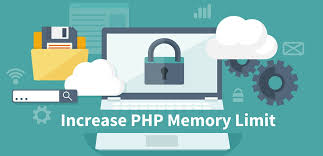5 Social Media Security Tips To Mitigate Risks In 2020
Due to the COVID-19 pandemic, there is a rapid increase in the use of social media and telecommuting, which brings a great concern about cybersecurity issues. People all around the world are surrounded by doubts about how to implement security for organizations? Is telecommuting secure?
Cyber-attacks have been a part of the digital world for the past 10-12 years. According to a report by ID Theft Resource Center, between January 1, 2005, to March 31, 2020, there have been 11,556 recorded data breaches. In this era, it is almost impossible to eradicate cyber-attacks. Since the coronavirus outbreak, cyber-attacks are on the rise due to the fact that people are in lockdown, and most of them are remote workers.
Let’s Have A Look At Recent Surveys And Cases About Cyber-attacks:
- According to CheckPoint Research report, Apple was the most frequently targeted brand by cybercriminals for phishing attempts(10% of all brand phishing attempts), Netflix as the most imitated( related to 9% of all phishing attempts) based on mobile-based phishing attempts and Yahoo(6% of all phishing attempts) was targeted the most for email-based phishing attempts.
- The Ministry of Home Affairs(MHA) warned that Zoom video-conferencing app is not a safe platform as a sudden increase in Zoom users led to a security issue of Zoom bombing-in uninvited users joined meetings and chats. To gain access to one of the most secure and trusted social media downloaders, you can always go ahead with 4hub. Talking about Zoom, If someone gets to know about the Meeting ID or link of the conversation, it can enter it, which resulted in data leaking and compromising security and privacy factors.
- As per the Norton LifeLock Cyber Safety Insights survey, almost 500 million consumers have been victims of cybercrime in which nearly 350 million faced this unfortunate event last year alone.
- According to Cyber Security Breaches Survey 2020, almost half of businesses(almost 46%) report having cybersecurity breaches at least once in a week in 2020. Since 2017, companies have reported a rise in phishing attacks(from 72% to 86%).
Five Most Essential Tips To Avoid Cyber Attack Risk In 2020 :
Install Anti-virus Software:
Anti-virus software plays a vital role by ensuring the protection of your system network from viruses. You should avoid unknown email attachments, system files, links, and applications as it may contain viruses and have a threat of cyber attack. It is necessary to install a quality anti-virus software program that will scan for viruses, protect the system, and stay up to date daily as many new viruses are created.
Regularly Update Your Software And Create Backups:
Over this period, it is crucial to update your system automatically. Periodic updates allow the system to improve and repair any abnormalities and features that are lacking in it. You might feel irritated to update your order in a few intervals, but it’s very much important.
If you do not do so, then there is a high chance that abnormalities, bugs, viruses that might skip the radar of the anti-virus will remain in the system, and out-dated weak security settings can allow hackers to exploit the data.
If your system or network is hacked, then do have a backup of the data. So it can be easy for you to reset the system without losing your data.
Use A Strong Password And Don’t Get Too Personal In Social Media:
It is widespread to witness that people share their passwords on Facebook or Instagram with other people and share their live location on these platforms. Do use a strong and complex password, never share it with anyone, and it will be beneficial to use different passwords for different applications.
A strong and secure password is a basic necessity to avoid cybercrime risks. It would be best if you also were careful about sharing personal information on social media because cybercriminals can easily guess your password by analyzing your details. Sharing live locations can allow anyone to find you easily, which can invite unfortunate threats.
Set up a VPN:
Virtual private networks(VPNs) can be used for an additional layer of security and privacy and can avoid cyberattack risks.VPN is a private data network that uses public networks to tunnel data from one system to another and uses encryption, which provides a secure connection and many benefits.
But it has it’s limitations as it does not help prevent malware, viruses, and internal hacking threats, i.e., cannot prevent someone from hacking a system physically. It can help you prevent external hacking threats. From a business perspective, setting up VPNs is a smart move to strengthen security and privacy measures.
Don’t intermix personal and professional applications:
According to Remote Work Security Survey results, as most people are working from home, 41% of employees use unsecured individual applications to transmit files and documents that are confidential, and 19.3% of remote workers are unaware of the security guidelines.
This intermixing of personal and professional applications can lead to a high risk of data breaches and unpredictable consequences as cybercriminals can quickly access that valuable data. In this way, there are threats to both the personal and professional life of the person and the organization.





